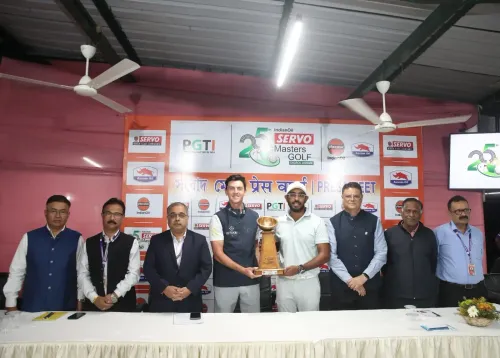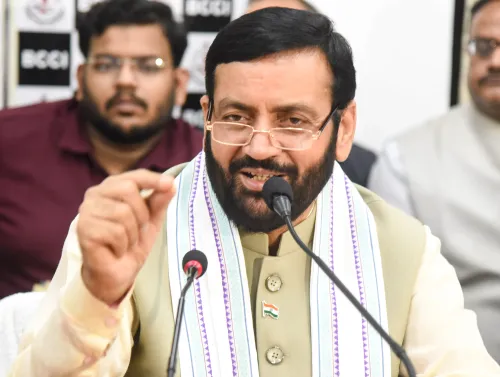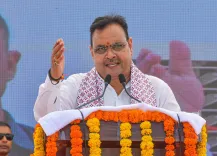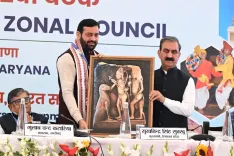Is the DMK Government Discriminating Against Aided-College Faculty?
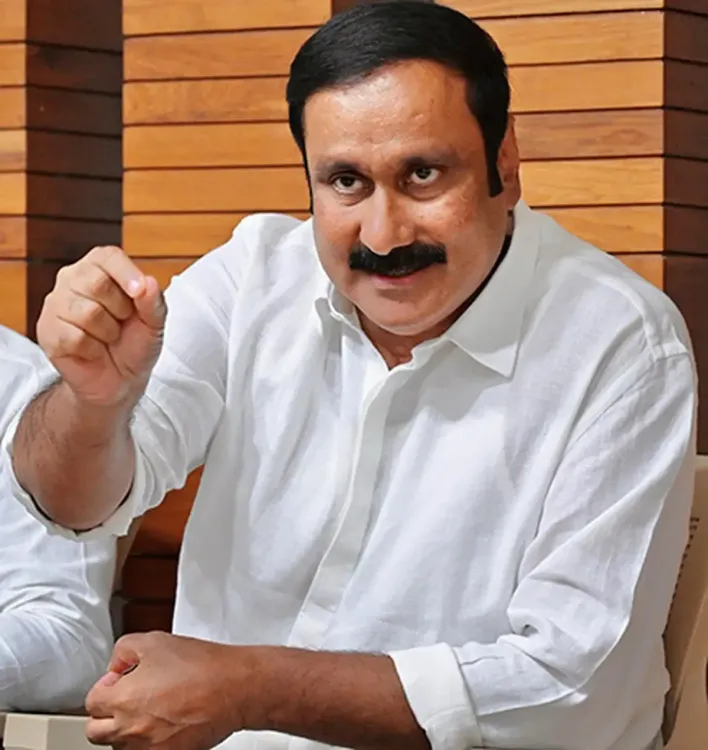
Synopsis
Key Takeaways
- DMK government accused of discrimination
- Promotions and pay revisions withheld
- Teachers' rights under the Career Advancement Scheme at stake
- Impact on students' educational opportunities
- Support for upcoming protests from educators
Chennai, Nov 17 (NationPress) The president of Pattali Makkal Katchi (PMK), Anbumani Ramadoss, has leveled allegations against the DMK government for its perceived bias against educators in government-aided colleges by withholding their rightful promotions and financial perks established under the Career Advancement Scheme (CAS).
He stated that the administration seeks to systematically undermine aided institutions, thus depriving both educators and students of their rightful educational entitlements.
Ramadoss pointed out that the state government had issued a Government Order (GO) on January 11, 2021, to facilitate promotions under the CAS for faculty at government universities, colleges, and government-aided colleges.
While the regulations for these promotions were disseminated on May 4, 2021, educators at government colleges and universities have benefitted from promotions alongside corresponding salary increases and back payments. In contrast, teachers at aided colleges continue to be deprived of these advantages, he claimed.
According to CAS guidelines, assistant professors at aided private colleges are due for promotion to Senior Assistant Professor four years following their PhD acquisition, or within five years if they do not possess a PhD.
Ramadoss emphasized that their salaries should be adjusted accordingly, as Senior Assistant Professors reaching five years of service qualify for promotion to Assistant Professor (Selection Grade), and those with three years in that rank are eligible for Associate Professor status.
“After an additional three years, they qualify for promotion to Professor,” he explained.
He highlighted that while numerous aided-college instructors are eligible for these promotions, their salary revisions—effective from the promotion date—have been largely withheld across most districts.
“Among the eight zones governed by the Directorate of Collegiate Education, only the Coimbatore and Thanjavur districts have executed both promotions and salary increments. In Chennai, Tiruchi, Madurai, Vellore, Dharmapuri, and Tirunelveli, educators have received promotions on paper, yet their revised salaries and back payments remain pending,” he asserted.
He noted that the denial of financial approvals also prevents aided-college teachers from being integrated into the Integrated Financial and Human Resource Management System (IFHRMS), which is vital for acknowledging promotions.
Without inclusion in the IFHRMS, recently promoted Associate Professors are unable to mentor PhD students.
“Had the promotions been duly recognized, more than 1,000 students could have registered for doctoral research over the past three years,” he remarked, accusing the government of punishing students by targeting educators.
Ramadoss recalled that Higher Education Minister K. Ponmudy had promised teacher representatives on June 23 that revised pay and back payments would be included in the July payroll.
“In true DMK fashion, this pledge was also broken,” he contended, alleging that the government's behavior is not coincidental but rather a part of a broader strategy to dismantle aided institutions.
He mentioned that the DMK previously sought to transform aided private colleges into private universities—effectively eliminating governmental support—until persistent protests from PMK and educators' associations compelled its retraction.
Expressing full support for the indefinite hunger strike and demonstrations scheduled to commence on December 12 by various university faculty associations, Ramadoss demanded that all outstanding entitlements for aided-college instructors be granted without delay.



